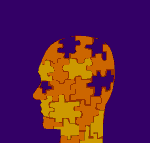 Brain Health and Balance
Brain Health and Balance 
You do these games, or you know several people that do.
Are they a waste of time when it comes to improving your brain health?
Well, that does depend upon who you talk to, but since you are talking to me, I will share some research and then give you the real skinny from my perspective.
In this short and pretty good article by a CBS News reporter(1), you seem to get both the view that it helps some things but ONLY that which you train on. In another article by the Guardian, they leave little likelihood that these games are useful. In fact, they referenced a psychology journal study(2) that working memory and visual search games showed no improvement in other higher brain functions.
But, don’t quit and leave in despair, there may be hope yet.
So, the fancy word for ‘improving in other-than-trained brain functions’ is intelligence fluidity or transfer, meaning after playing the game, are you any better at any brain function other than playing the game?
It’s a good question to ask — one which I have spent quite a bit of time looking for proven answers.
Let’s take a break from journalists and researchers and just use your common sense. Let’s say you want to get better at playing the piano, a complicated musical skill. To do this, you spend 30 minutes per day, 5 days a week, for 6 weeks, practicing the guitar. At the end would you be a better piano player? What do you think?
Hmm. On the surface, I’d say “No.” I would be no better at playing “Twinkle Twinkle Little Star” on the piano, than if I had never practiced the guitar.
And that’s the way most of these researchers ask the question — real specific and uncomplicated.
But this world is complicated, and the brain certainly is.
What if you tested how quickly/easily the ‘guitar-practicer’ learned piano, vs. a ‘non-guitar-practicer’? Then you might see some transfer of learned skill, of brain improvement.
Now, this journal article in Frontiers in Human Neuroscience(3) does an excellent job of reviewing both sides and why research findings have been conflicting. Specifically,they looked at improvement in memory and the transfer of training. In their one study, they were able to reproduce the successful transfer in 3 groups and unsuccessful transfer another group, even though both groups improved in the task they trained on. The task they practiced was remembering the location or type of objects.
So, what was the secret to the difference? The difference was how many days they spread out the training.
Which do you think did better: The 20 sessions in 1 day, 5 days, 10 days, or 20 days? It was the 20 days, and no others.
There are several theories as to why this is so. Importantly, this spread-out-training does not seem to be the best for learning others activities, such as motor activities, but the jury is still out. And what about training for longer than 20 days. We don’t know for certain.
So, in summary, those brain games are doing you some good, but to get the most out of them, it seems best to spread out the learning. This can also be done by participating in a variety of different games. In fact, that may give even more transfer effect.
In future posts, I will share more of the brain boosting effects that you can add to your program to insure the greatest benefit.
References:
- – CBS News article: http://www.cbsnews.com/news/do-brain-training-games-really-improve-your-brain-function/
- – psychology journal study: http://www.ncbi.nlm.nih.gov/pubmed/22708717
- – Frontiers article: http://journal.frontiersin.org/Journal/10.3389/fnhum.2014.00217/full




